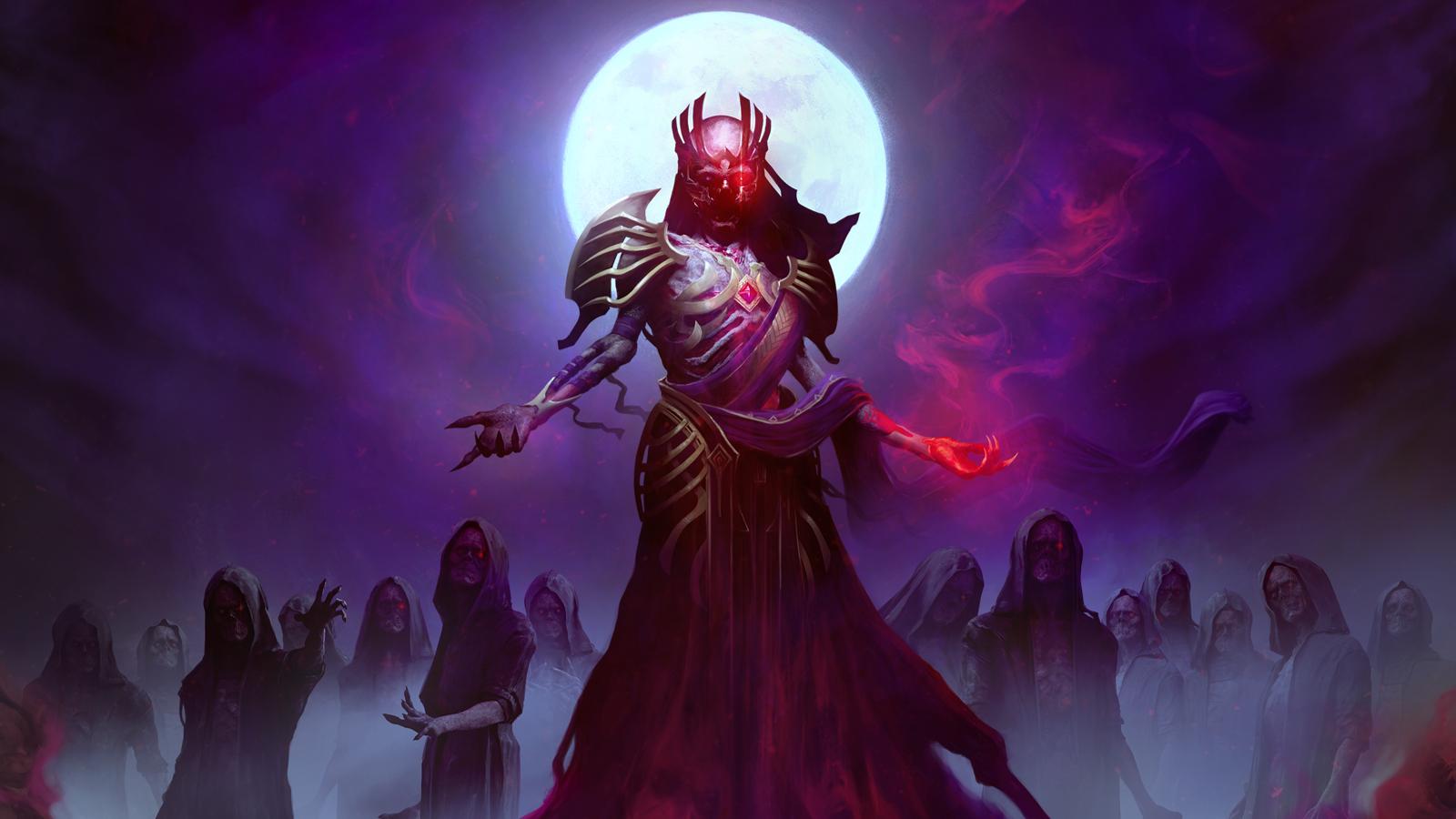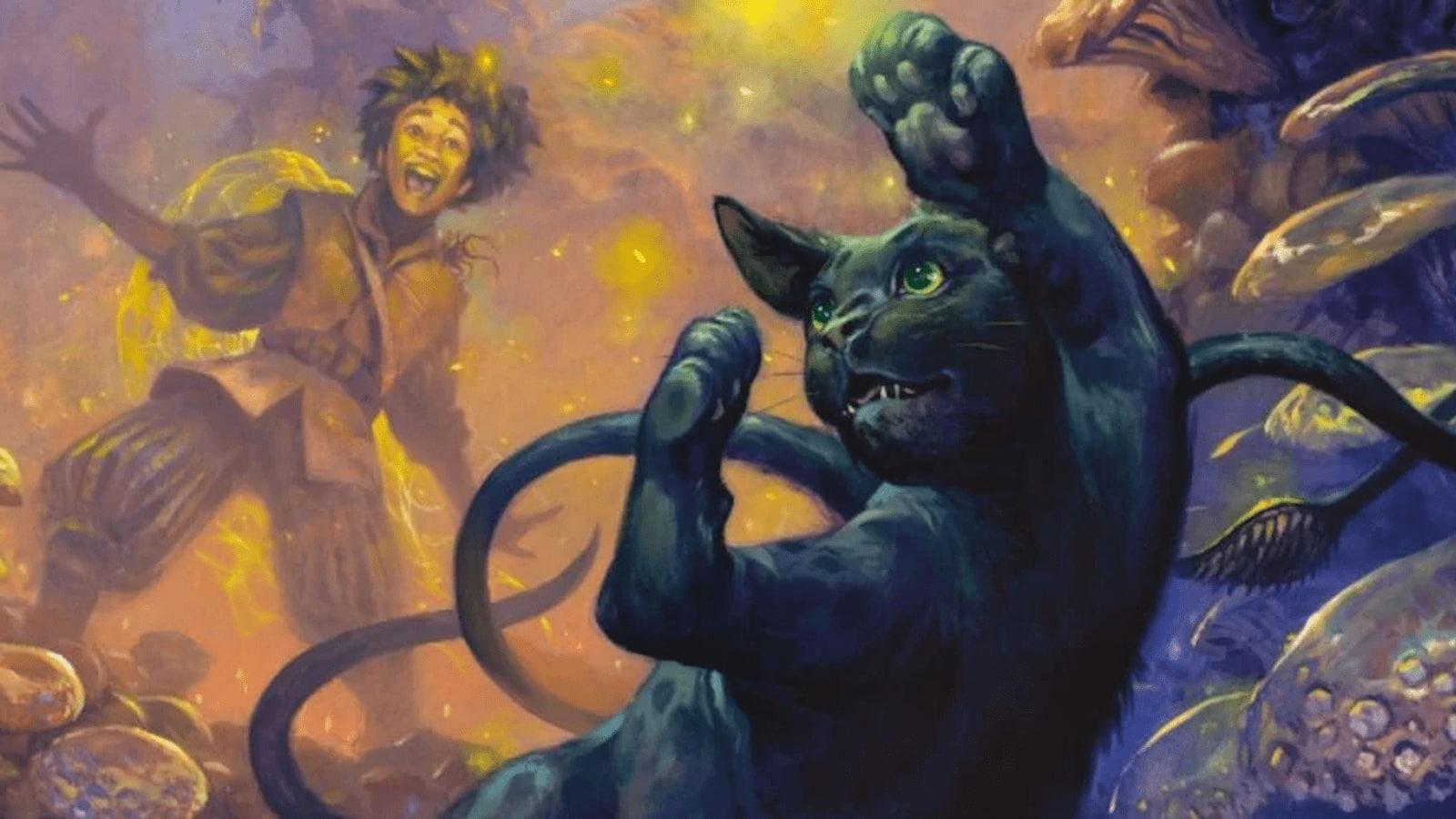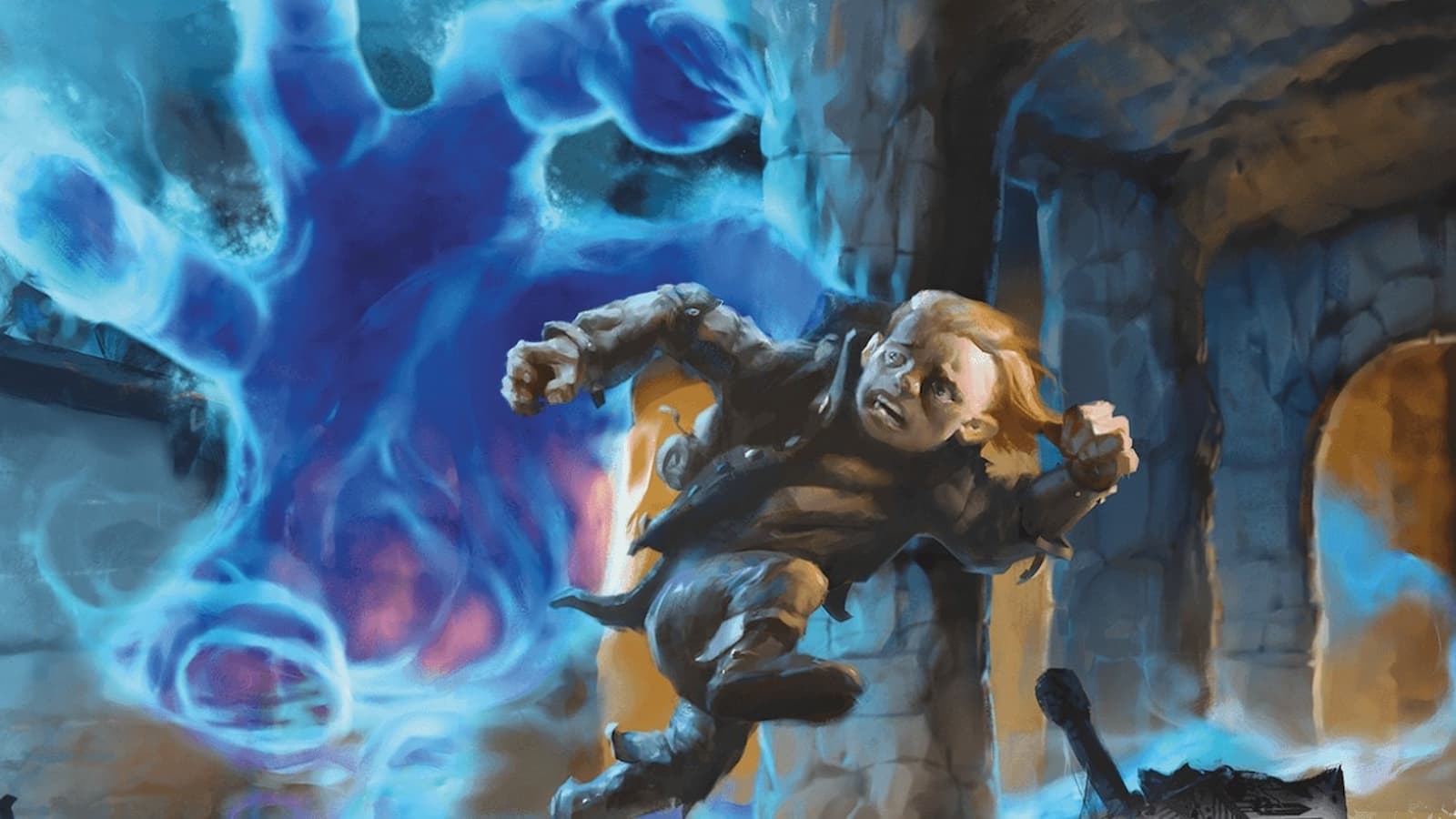D&D 5e Wizard Guide: Best options for spellcasters
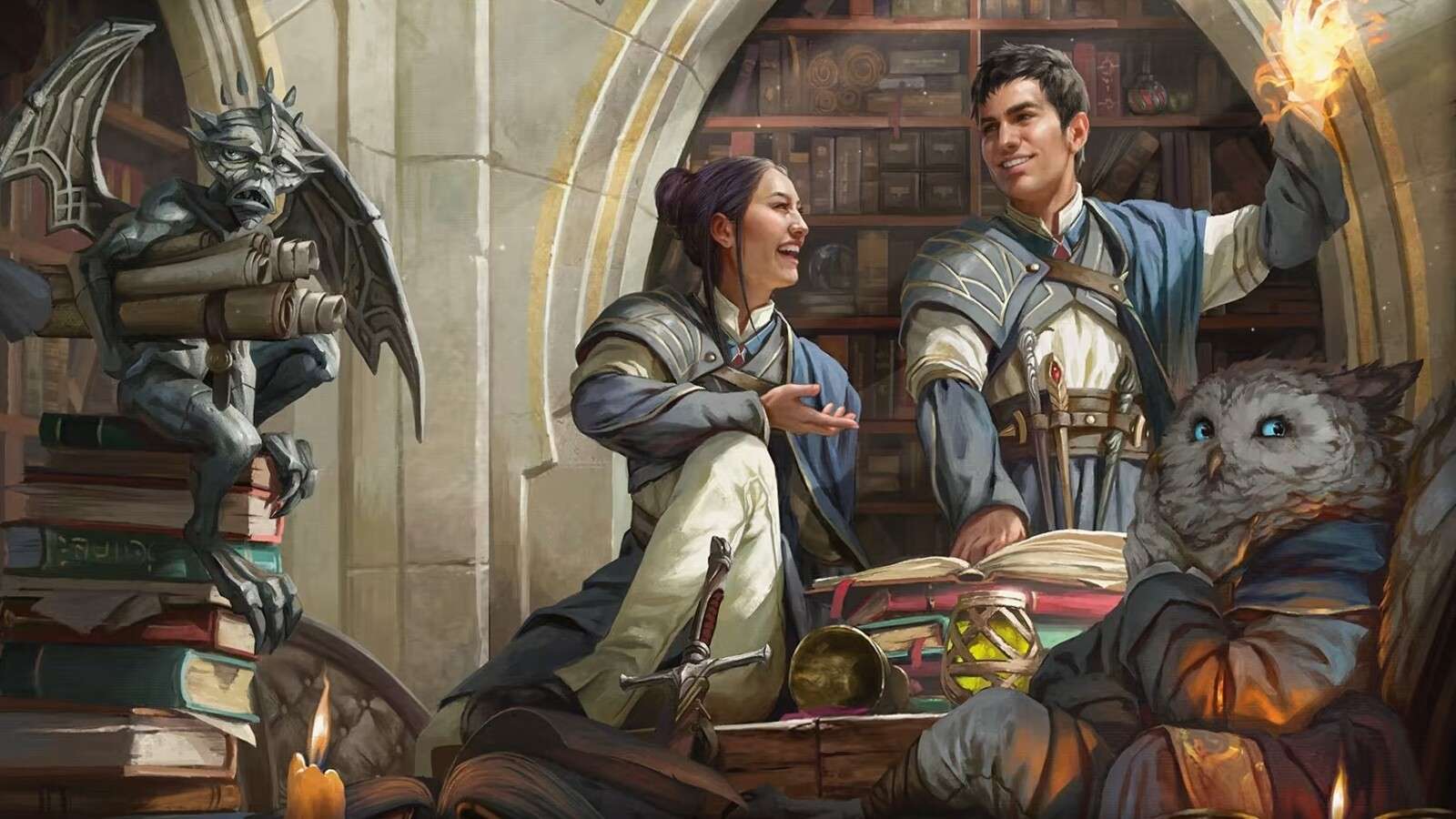 Wizards of the Coast
Wizards of the CoastThere’s much more to being a Wizard than holding a staff and growing an impressive beard, and we’ll show you exactly what you need to get started in D&D 5e.
Wizards are D&D’s premier arcane powerhouses, commanding the raw force of magic through knowledge and skill. Whichever school of magic you choose to master, playing a Wizard means having the options on hand to outthink and outmaneuver any obstacle. We’ll walk you through how to get the most out of playing a Wizard in D&D 5e.
Best Race options for Wizards in D&D 5e.
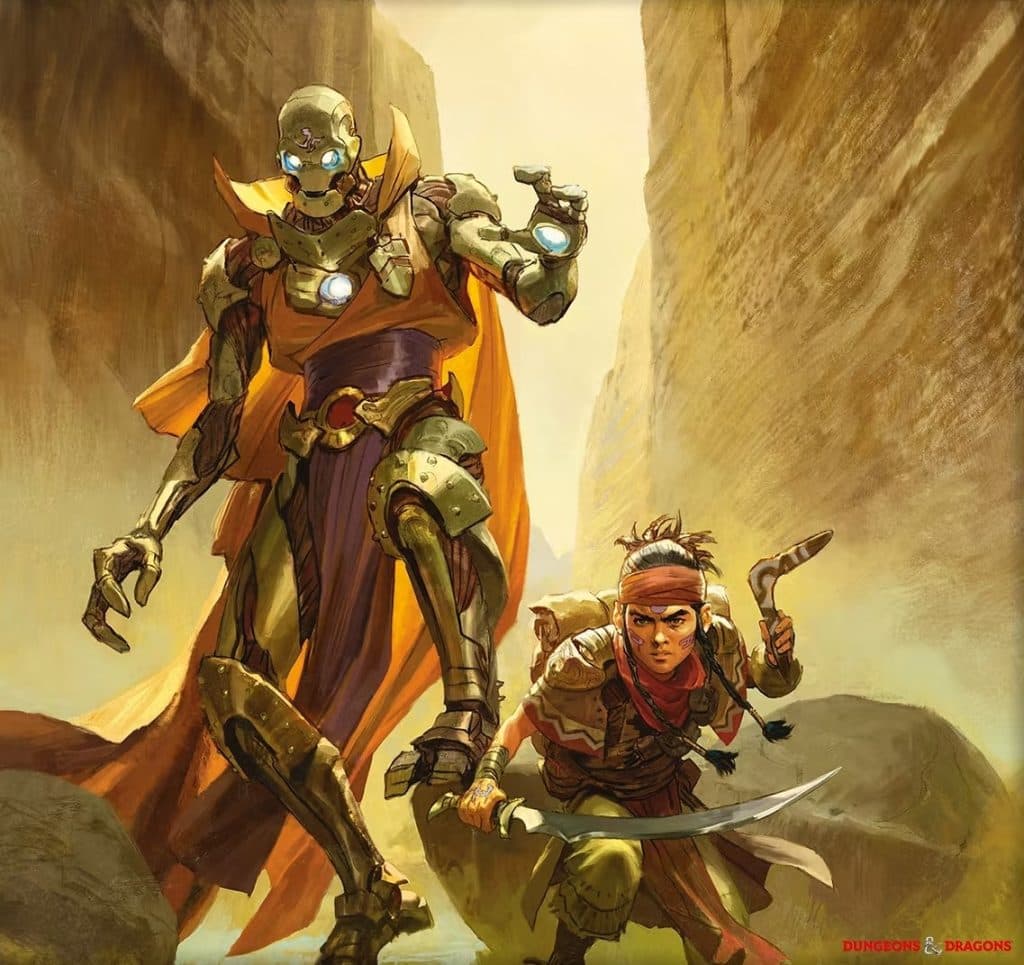 Wizards of the Coast
Wizards of the CoastIt should be noted that, with the release of Tasha’s Cauldron of Everything (TCoE), Races are no longer tied to specific stat increases in the way they once were. Tasha’s flexible ability score rules can have any race grant bonuses to any ability score, allowing for much more variety in character concepts without sacrificing mechanical strength. But for any players making use of the Player’s Handbook (PHB) rules, the optimal races for Wizards are as follows:
Gnome
Gnomes make naturally proficient wizards, their bonus to intelligence is the highest in the PHB. In addition, their Gnomish Cunning feature grants advantage to intelligence, wisdom, and charisma rolls, allowing them to more effectively fend off enemy spellcasters.
Tiefling
Tiefling may be more naturally suited towards charisma-based roles but don’t count them out as a Wizard race. Their racial spells can add some additional flavor and give this class access to options that even their prodigious spellbook wouldn’t normally be able to contain.
High Elf
Another intelligence-boosting option, High Elves also function well as part of high-dexterity builds, reducing the Wizard’s chance of getting hit and providing a much-needed boost to survivability.
Hit Dice determine your spellcaster’s hit points
The Wizard’s hit dice – determining the HP that they gain when leveling up, as well as how much health they can regain on a short rest – is a D6. It’s worth investing in the constitution stat to bump those numbers up a little, but fragility is an acceptable tradeoff for phenomenal arcane power.
Wizard ability scores and saving throws
The most broadly useful ability scores for Wizard, in order of effectiveness, are
- Intelligence
- Dexterity
- Constitution
- Widom
- Charisma
- Strength
Intelligence is the Wizard’s casting stat, necessitating its place at #1, and boosts a lot of interesting knowledge-based skills besides.
Dexterity is an incredible ability for almost any character in 5e and is always difficult to recommend dumping, but Wizards especially thrive from going early in initiative and dictating the tempo of an encounter.
Constitution can buff this class’ otherwise limited health pool and is also a necessity for maintaining concentration on spells mid-combat. The War Caster feat can be a huge boon for concentration spells, but a good foundation of Constitution is key.
Wisdom has little direct applications for Wizards, but Wisdom saves are frequent in 5e, often being necessary to resist mind-control effects. Additionally, key skills like Perception and Insight are tied to Wisdom.
Charisma can be taken or left as this class but is always useful for social encounters. Charisma saves, while somewhat uncommon, can still be dangerous to fail.
Outside of hyper-specific multiclasses, Strength does almost nothing for this class. Feel free to put your lowest score here. Your Wizard may end up looking frail on paper, but nothing makes up for a lack of muscle mass quite like summoning a shower of meteors over your foes.
The Wizard has proficiency in Intelligence and Wisdom saves, protecting them from many adverse spell effects, as well as rare psionic opponents. Int saves crop up exceedingly rarely, but the likelihood of encountering them has skyrocketed since Mind Flayers’ inclusion in Baldur’s Gate 3.
Wizard starting skills and proficiencies
Among the least martially proficient classes in D&D 5e, the Wizard only gains the following weapon proficiencies: Daggers, darts, slings, quarterstaffs, and light crossbows. They also have no proficiencies for armor, shields, or tools.
The skills that the Wizard starts with are heavily knowledge-based, befitting their scholarly nature. They can choose two skill proficiencies from among Arcana, History, Insight, Investigation, Medicine, and Religion.
Class Features grant varied gameplay options
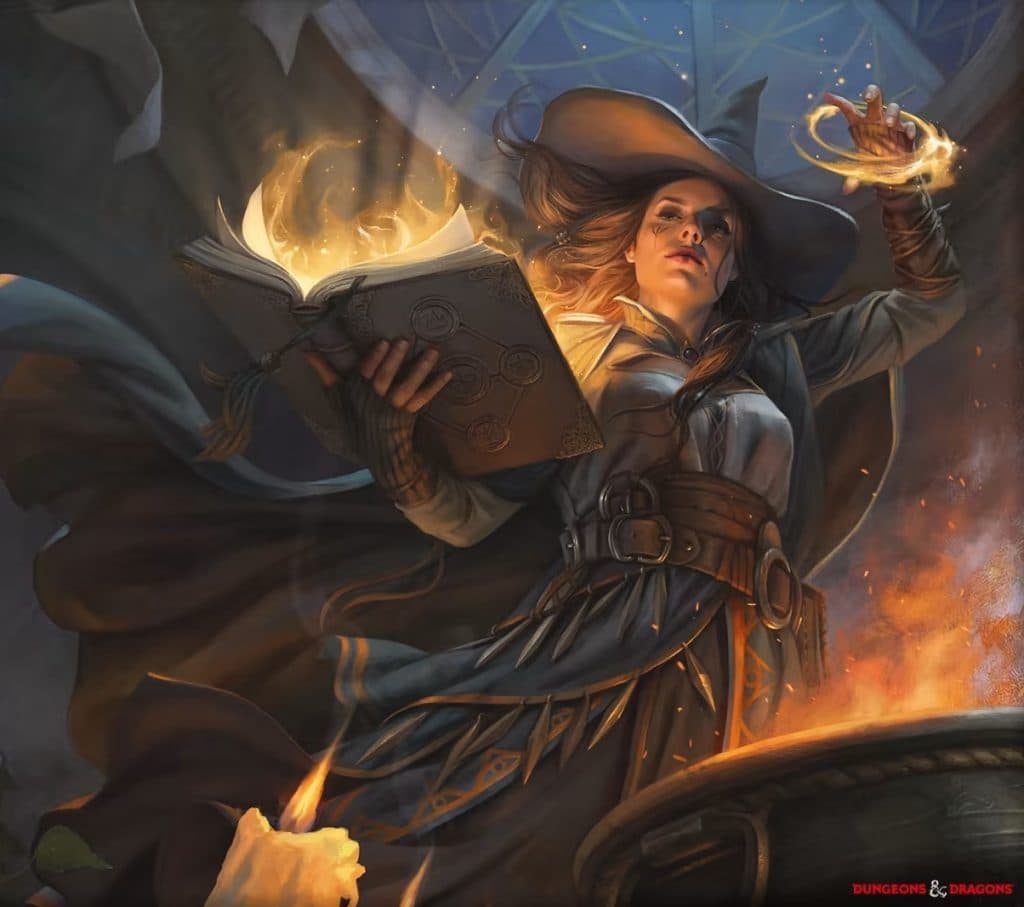 Wizards of the Coast
Wizards of the CoastSpellcasting
The main draw of Wizards as a class is the breadth and depth of their arcane knowledge. They can gain access to a greater number of spells than any other class in 5e by far, beginning with six and gaining two every time they level up. And that’s not all, Wizards can copy spells found in-world from scrolls, tomes and more into their spellbook, further adding to their repertoire.
A Wizard’s spellbook contains their total known spells, and after each long rest, they prepare a certain number of those total spells to be accessible until the next long rest. The total number of spells that can be prepared at a time is equal to a character’s Intelligence modifier plus their total number of Wizard levels.
All Wizard spell slots are regained upon finishing a long rest.
Wizards get the best version of Ritual Casting in 5e
Several spellcasting classes in D&D 5e have access to the Ritual Casting feature, but Ritual Casting differs slightly depending on the class that is using it. Thankfully, Wizards’ version of the feature is by far the best.
Wizards can cast any spell in their spellbook as a ritual – which does not expend a spell slot – so long as that spell has the ‘ritual’ tag (displayed near components, casting time etc.). And, if the spell has the ritual tag, they do not need to prepare the spell in order to cast it as a ritual. While the additional casting time of ten minutes means that Ritual Casting cannot be done on the fly, the added flexibility and lack of spell slot use make this feature invaluable in many situations.
Arcane Recovery refreshes spell slots
Once per day, when finishing a short rest, you can regain spell slots with a combined level equal to half your overall Wizard levels rounded down. You cannot regain slots of a higher level than 5, but recovering some lower-level slots ensures that Wizard players won’t burn themselves out in a single combat, retaining some spellcasting capabilities throughout the adventuring day.
Spell Mastery and Signature Spells
These two abilities are the class’ capstones; powerful abilities that reward leveling the class as high as possible.
Spell Mastery allows you to choose a first and second-level spell from your spellbook, which can then be cast at will (at least without upcasting) without expending a spell slot. Using Spell Mastery on the Shield spell grants a near-permanent +5 to armor class, Spell Mastery Detect Thoughts gives at-will mind-reading capabilities, and the list goes on.
Signature Spells is at once more powerful and more limited than Spell Mastery. It functions in a similar way, modifying two third-level spells from the spellbook to be free to cast – again without upcasting – without expending a spell slot, but only once per short rest. In addition, these spells do not count against the total spells prepared each day. While this ability may be less powerful than other class capstones like the Cleric’s and Druid’s, it still expands the Wizard’s versatility and keeps powerful resources in reserve.
Wizard subclass options allow you to customize your class
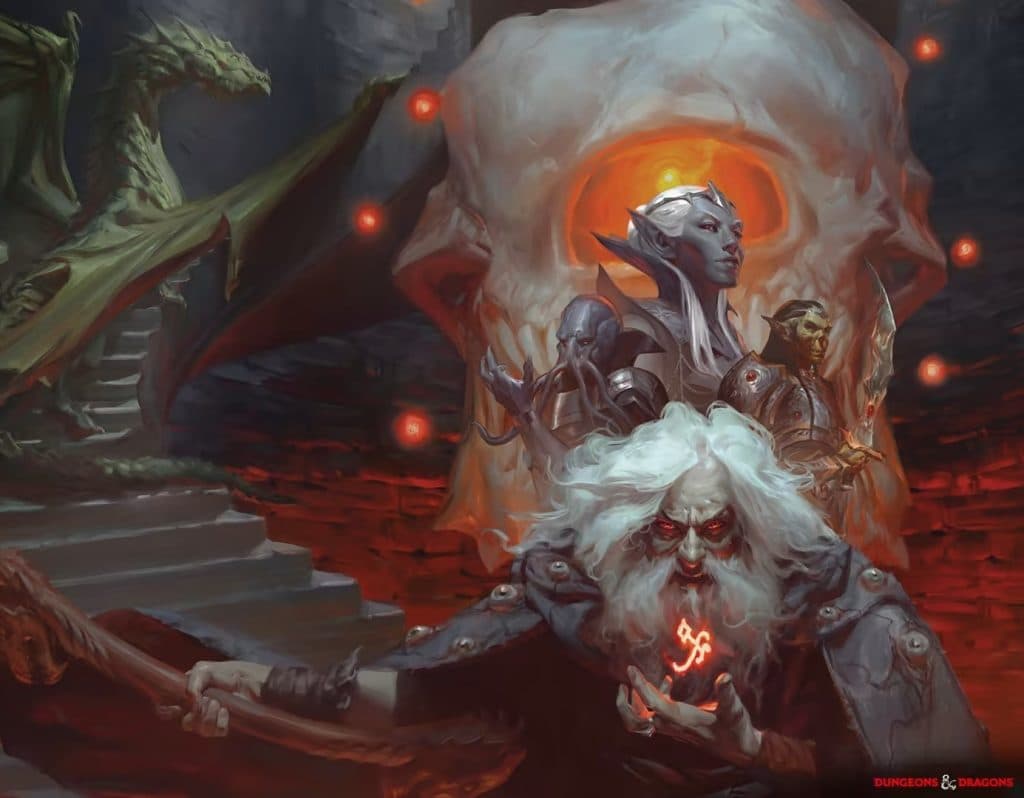 Wizards of the Coast
Wizards of the CoastThe Wizard’s subclass options from the Player’s Handbook are detailed below, each specializing in a single school of magic. Additional subclasses have since become available, located in Xanathar’s Guide to Everything, Tasha’s Cauldron of Everything, and more.
Abjuration
Focusing on spells that counter, protect, and control the battlefield, Abjurers are the ultimate defensive option for Wizards. With a replenishable ward to soak up damage, a bonus to Dispelling and counterspelling, and an eventual resistance to all spell damage, Abjurers can put up a fight long after more fragile Wizards have hit the deck, giving the class some much-needed survivability.
Conjuration
A Conjurers’ specialty is summoning, whether that be simple objects or powerful allies. Conjurers can augment the health and power of their summoned creatures, and their concentration is almost impossible to break. With the recent addition of more powerful summon spells to 5e, the Conjurer can now make a much bigger impact in battle.
Divination
Diviners use the power of foresight to manipulate the odds and achieve a perfect outcome. They can record D20 Portent rolls for later, potentially forcing rolls of their choice to succeed or fail. This ability can come in truly clutch in a heated battle, forcing an enemy to be susceptible to a powerful spell. Diviners also see beyond what regular classes can, taking notice of invisible creatures, activating Truesight and other all-seeing gifts.
Enchantment
Enchanters are the most socially adept of Wizards, and among the most terrifying. Enchantment spells focus on manipulation and control, subtly controlling enemies of all kids to further their own ends. Enchanters can use a reaction to shift an attack to another target, lock opponents down with a hypnotic stare, target multiple figures with the same enchantment, and wipe the knowledge of their manipulation from a target’s mind entirely.
Evocation
The most directly damaging subclass, evokers channel pure arcane power, but also have enough control to prioritize their allies’ safety. Evokers can boost the power of their spells – to the point of instantly dealing max damage rather than rolling in limited circumstances – but can also ensure that their allies take no damage when within one of their AOEs. For Wizard players looking for sheer firepower, Evocation is the way to go.
Illusion
Masters of misdirection and enthralling spectacle, Illusionists tread the line between what is real and what is imagined. Illusion-focused Wizards confound their enemies, alter the properties of their illusions, and even make those illusions temporarily real. Players that look for creative solutions to problems and thrive when solving puzzles will suit illusion Wizards perfectly.
Necromancy
Necromancers thrive on the energy of death. Draining vitality from their fallen enemies, raising the dead, and forcing existing undead to do their bidding. Necromancers are a classic summoner-style Wizard, beefing up the undead creatures they bind to their will. Necromancy is a dark path to walk, but an incredibly rewarding one.
Transmutation
Transmuters are magical alchemists, altering the properties of physical matter. Non-living material is just the start, eventually, Transmuters can heal living beings, restoring life, health, and youth. Additionally, Transmuters are adept with the Polymorph spell, transforming themselves with relatively little effort.
Best Wizard spells per level
The Wizard has access to a truly mind-boggling number of spells in D&D 5e. In order to narrow the list down, we’re presenting our picks for the best spells available to the class of each level. Whether excelling in control, single-target damage, AOE, exploration, or social encounters, there’s a spell here to suit any need.
| Spell Level | Best Spell Options |
|---|---|
| Cantrips | Fire Bolt, Friends, Light, Mage Hand, Mending, Mind Sliver, Minor Illusion, Prestidigitation, Shape Water, Toll the Dead |
| 1 Level | Absorb Elements, Charm Person, Chromatic Orb, Comprehend Languages, Detect Magic, Disguise Self, Feather Fall, Find Familiar, Identify, Mage Armor, Magic Missile, Shield, Tasha’s Hideous Laughter |
| 2 Level | Blindness/Deafness, Blur, Darkness, Detect Thoughts, Enhance Ability, Hold Person, Invisibility, Knock, Mirror Image, Misty Step, Scorching Ray, Suggestion, Vortex Warp, Web |
| 3rd Level | Bestow Curse, Blink, Counterspell, Dispel Magic, Fear, Fireball, Fly, Gaseous Form, Haste, Hypnotic Pattern, Leomund’s Tiny Hut, Major Image, Sending, Slow, Speak with Dead, Summon Undead |
| 4th Level | Banishment, Evard’s Black Tentacles, Fabricate, Greater Invisibility, Hallucinatory Terrain, Polymorph, Raulothim’s Psychic Lance, Sickening Radiance, Summon Construct, Wall of Fire |
| 5th Level | Animate Objects, Bigby’s Hand, Dominate Person, Legend Lore, Modify Memory, Passwall, Seeming, Summon Draconic Spirit, Telekinesis, Wall of Force |
| 6 Level | Chain Lightning, Contingency, Disintegrate, Fizban’s Platinum Shield, Globe of Invulnerability, Mass Suggestion, Programmed Illusion, Sunbeam, True Seeing |
| 7 Level | Crown of Stars, Etherealness, Forcecage, Mirage Arcane, Mordenkainen’s Magnificent Mansion, Plane Shift, Reverse Gravity, Simulacrum, Teleport |
| 8 Level | Clone, Dominate Monster, Feeblemind, Illusory Dragon, Maze, Mind Blank, Power Word Stun, Sunburst |
| 9 Level | Blade of Disaster, Foresight, Gate, Meteor Swarm, Prismatic Wall, Shapechange, True Polymorph, Wish |
That’s our comprehensive look at the Wizard class in D&D 5e. We’ve given you all you need to create a modern Merlin and expertly wield the forces of magic.
If you click on a product link on this page we may earn a small affiliate commission.
